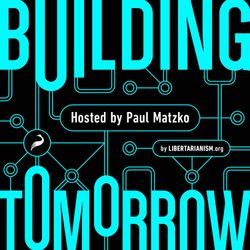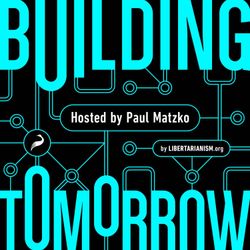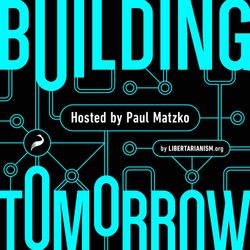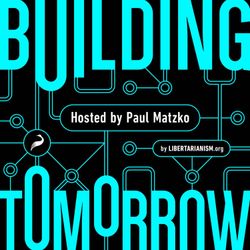Share

Building Tomorrow
Devin Nunes Sues a Fictional Cow, His Mom, and Liz Mair
Devin Nunes is a US Congressman and former dairy farmer from California. Imagine his surprise when a member of his cow herd started a twitter account that focused on Nunes’s failings as a politician. That account was quickly joined by several other parody accounts, including one purporting to be his mother. Nunes responded by filing multiple lawsuits against the offending accounts, against Twitter, and against lobbyist Liz Mair, claiming hundreds of millions of dollars in damages.
Yet the courts have typically protected parody and satire under the First Amendment to the US Constitution, giving the lawsuits little chance of winning in court. But Nunes filed the claims in Virginia, a state with few penalties for frivolous lawsuits, meaning that even in failure Nunes’s lawsuits may still intimidate his critics and tie them up in a long, expensive legal battle. Liz Mair joins Paul and Will to discuss Nunes, his cow, and how the lawsuit has created an internet backlash drawing even more attention to the parody accounts than before.
Who is Devin Nunes and why is he upset? Why is he suing Twitter, Liz Mair, other parties? What did Liz Mair do? What is the Streisand effect? What is an anti-SLAP law? What are the biggest changes to communication in the political world due to technological advances and social media?
Further Reading:Free Speech Means I Don’t Have to be Nice to Devin Nunes on Twitter. So why’s he suing me?, written by Liz Mair
Read the Pointed Tweets That Led to a Congressman to Sue Twitter, written by Rachel E. Greenspan
Related Content:The Federalist No. 76, written by Alexander Hamilton
Will EU Copyright Break the Internet?, Building Tomorrow Podcast
Free Speech Online, Free Thoughts Podcast
More episodes
View all episodes


The Future of Stuff
48:40|Your home is full of technological miracles, devices that your ancestors would have regarded as near magic because of the life of relative ease they provide us with. However, something is changing. In the past, we got richer by owning more stuff; but in the future, we will have more by owning less. In this final episode of Building Tomorrow, Paul talks with Cory Doctorow, Michael Munger, Ruth Cowan, and Chelsea Follett about the past, present, and future of material possession.
One Landfill's Trash is the Future's Treasure
43:39|If you're the kind of person who carefully sorts out your recyclables from your trash, cleans it, and puts it out in the blue bin for pickup, you probably don't realize that as much as 90% of that material either just ends up in a landfill or, worse, is dumped into the ocean. Indeed, much of the plastic litter in the Pacific Ocean is the result of our well-intentioned but misplaced efforts at recycling since the 1990s.In this episode, we talk to an environmental economist, landfill scientist, and blockchain engineer about the future of our waste. We can efficiently sort and store our plastics in landfills for future mining operations, incentivizing good behavior via cryptocurrency rewards. We can incinerate our waste in hyper-efficient facilities that power cities and reduce our carbon footprint. Building Tomorrow means building more and better landfills.
The Underpopulation Crisis
49:47|People are afraid. Afraid that they are consuming too much, emitting too much, having too many kids, and running the planet into the ground. Eight billion people seems like too many. But a growing number of experts are sounding the alarm that a far worse problem is on the horizon, an underpopulation crisis. People are having fewer kids and countries are aging. For example, by the end of the century Japan will halve its population. Those who remain will be older and poorer. We need more people, not fewer, if we want to find innovative solutions to climate change and resource crunches. For music attributions see: https://www.libertarianism.org/podcasts/building-tomorrow/underpopulation-crisis
Data is the New Guano
46:21|What happens when a raw material that is valueless suddenly becomes valuable? If it's bird guano in the 19th century, you mine it and save the agricultural economy. If its data in the late 20th century, you collect it and create a new digital economy. Music attributions can be found here: https://www.libertarianism.org/podcasts/building-tomorrow/guano.
Building Tomorrow is Back!
03:52|The Building Tomorrow podcast is back in a new format. This season we will be focusing on wanting more. The desire for more embraces a prosperity mindset, the belief that growth and wealth are not a zero-sum game. We will release one in depth episode per month for 6 months. We would love for you to listen along as we long for more immigrants, more data, more houses, more mammoths, and more. Happy listening!
Building Tomorrow: Under Construction
02:00|We have a special announcement about the future of Building Tomorrow. Stay tuned.
Can We Fix U.S. Politics? (with Lee Drutman & Dan Bowen)
49:17|If voting leaves you feeling tired and vaguely dissatisfied, you're not alone. Over 60% of voters aren't happy with the two party duopoly that dominates US politics; others hate the flood of negative campaign ads or feel that politics is too big or too distant to be able to effect via the voting process.But there is hope! This week, Paul talks to two political scientists, Lee Drutman and Daniel Bowen to talk about how ranked choice voting, multi-member legislative districts, and packing the House of Representatives could save our democracy from its dire situation.
The Pandemic Can't Stop, Won't Stop the Techlash
47:51|There are some things that even a pandemic cannot stop. One of those things is political pressure to "do something" about Big Tech. Paul checks in with Matthew Feeney and Will Duffield to get an update on the state of the techlash. Furthermore, this year many of the major social media platforms have ramped up their fact-checking operations in an attempt to combat disinformation about the pandemic and partisan politics, but it is possible that they have opened a Pandora's Box of unintended consequences by doing so.